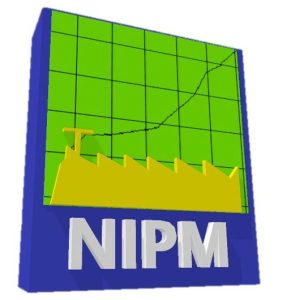NIPM Certifications: The Gold Standard of Professional Excellence.
NIPM certifications are the gold standard of professional excellence in Production, Manufacturing, Logistics, Supply Chain, and Operations Management.
NIPM Certifications: The Gold Standard of Professional Excellence.

NIPM certifications are the gold standard of professional excellence in Production, Manufacturing, Logistics, Supply Chain, and Operations Management.

Nigerian Institute of Production Management (NIPM Nigeria) certifications are the most prestigious and highly sought-after credentials in the field of production, manufacturing, logistics, supply chain, and operations management. These certifications are designed to recognize and validate the expertise, knowledge, and skills of professionals in these critical fields.

Why NIPM Certifications Matter
NIPM Certifications are the standards of professional excellence in production, manufacturing, logistics, supply chain, and operations management. Here are some reasons why these certifications matter:
- Demonstrated Expertise: NIPM Certifications demonstrate that an individual has acquired the necessary knowledge, skills, and expertise to excel in their profession.
- Enhanced Career Prospects: NIPM Certifications can significantly enhance career prospects, as they are recognized and respected by employers and industry leaders.
- Increased Earning Potential: Professionals with NIPM Certifications can command higher salaries and benefits, as their expertise and value to their organizations are recognized.
- Networking Opportunities: NIPM Certifications provide opportunities to connect with other professionals and industry leaders, potentially leading to new career opportunities and business partnerships.
- Professional Development: The process of obtaining NIPM Certifications encourages professionals to stay up-to-date with the latest industry trends, best practices, and technologies.

Types of NIPM Certifications
NIPM Nigeria offers various certifications in production, manufacturing, logistics, supply chain, and operations management, including:
- Certified Production Manager (CPM): A certification program for production managers, recognizing their expertise in planning, organizing, and controlling production processes. A precursor to CPM is Certified Production Management Professional (CPMP).
- Certified Manufacturing Manager (CMM): A certification program for manufacturing managers, recognizing their expertise in managing manufacturing operations, including policy and strategy, production planning, quality control, and supply chain management. The precursor to CMM is Certified Manufacturing Plant Management Professional (CMPMP).
- Certified Logistics Manager (CLM): A certification program for logistics managers, recognizing their expertise in managing logistics operations, including transportation, warehousing, and inventory management.
- Certified Supply Chain Operations Manager (CSCOM): A certification program for supply chain managers, recognizing their expertise in managing supply chain operations, including procurement, inventory management, logistics, transportation and distribution. A precursor of CSCOM is the Certified Supply Chain Management Professional (CSCMP).
- Certified Operations Manager (COM): A certification program for operations managers, recognizing their expertise in managing operations, including production planning, quality control, facilty maintenance, transportation and logistics, HSE and supply chain management.
- Certified Engineering Manager (CEM): A certification program for engineering managers, recognizing their expertise in managing engineering operations, including design, development, and implementation, facility management, maintenance operations, human resources management, finance, project management. The precursor of CEM is the Certified Engineering Management Professional (CEMP).
- Certified Maintenance Manager (CMM): A certification program for maintenance managers, recognizing their expertise in managing maintenance operations, including planning, scheduling, and controlling maintenance activities. A precursor to CMM is Certified Maintenance Operations Management Professional (CMOMP).
- Certified Quality Manager (CQM)/QCQA Certification: A certification program for quality managers, recognizing their expertise in managing quality operations, including quality planning, quality control, and quality improvement. A precursor to CQM is Certified Quality Management Professional (CQMP).
- Certified Procurement Manager (CPM): A certification program for procurement managers, recognizing their expertise in managing procurement operations, including sourcing, contracting, and supplier management. A precursor to CPM is Certified Procurement Management Professional (CPMP)
- Certified Operations Management Professional (COMP): A certification program for operations management professionals, recognizing their expertise in managing operations, including production planning, quality control, and supply chain management.
- Certified Supply Chain Operations Manager (CSCOM): A certification program for supply chain operations managers, recognizing their expertise in managing supply chain operations, including procurement, inventory management, and distribution.
- Certified Manufacturing Plant Management Professional (CMPMP): A certification program for manufacturing plant management professionals, recognizing their expertise in managing manufacturing plant operations, including production planning, quality control, and supply chain management.
- Certified Supply Chain Management Professional (CSCMP): A certification program for supply chain management professionals, recognizing their expertise in managing supply chain operations, including procurement, inventory management, and distribution.

Conclusion
NIPM Certifications are the gold standard of professional excellence in production, manufacturing, logistics, supply chain, and operations management.
NIPM Certifications demonstrate an individual’s expertise, knowledge, and skills, and can significantly enhance their career prospects, earning potential, and professional development.

CONTACT US TODAY:
For further details, contact us:
Tel./Whatsapp: 08023140750, 08069006671.
Email: info@nipmnigeria.com.ng
For Training & Membership
The Registrar
Nigeria Institute of Production Management
Acme House, 23, Acme Road,
Ogba Industrial Estate,
P.O. Box 7798, Ikeja, Lagos, Nigeria
Tel: 08023140750

Leave a Reply